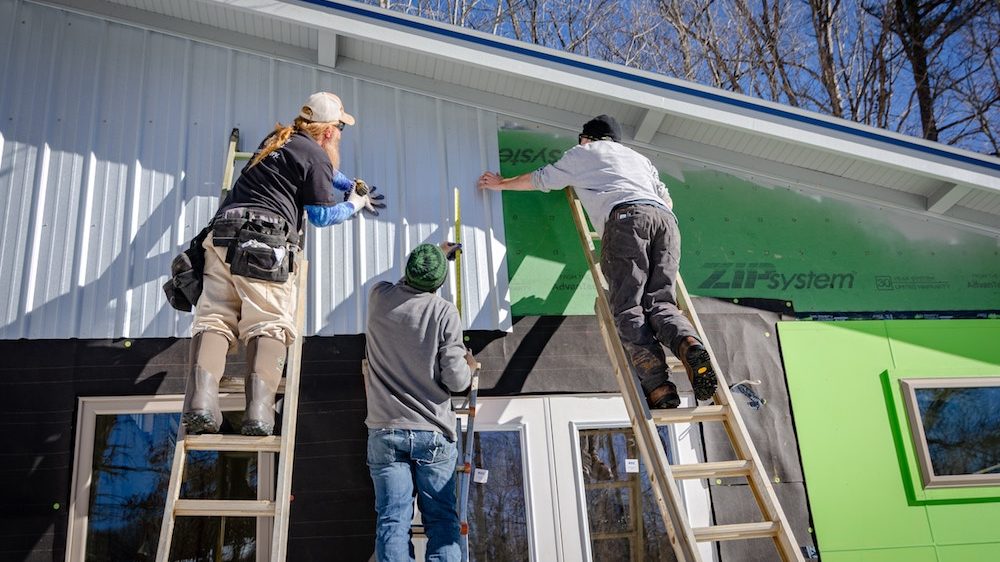
About the author
Jane Slack-Smith has been named one of the Top 10 Property Experts in Australia by Money Magazine, one of the Top 4 Financial Influencers by Qantas and been awarded the Australia’s Mortgage Broker of the Year twice.
“The reality of property ownership is that things can — and do — go wrong!”
From tenants defaulting on rent to accidents during renovations, house fires and natural disasters like hail damage, property investors need to protect their assets. This is why having the right insurance is essential.
Insurance policies come in all shapes and sizes so make sure you select one that is right for you.
And if you’re about to start a renovation and already have home insurance, never commence works without notifying the provider in writing. Check if your home and contents will be covered for damage or theft during the renovation. In some cases, insurance providers will not cover you at all if you commence works without notifying them.
And if you’re borrowing money to fund the renovation, your lender will ask for a current certificate of insurance to make sure you’re protected. If you complete a strategic renovation that adds value to your home, you may want to adjust your insurance policy by updating the value of your home.
Here are six popular types of insurance used by property investors.

1. Landlord insurance
Landlord insurance is different to home insurance mainly because landlord insurance does not cover the home’s contents (i.e. tenants’ belongings).
Landlord insurance offers investors protection against risks commonly associated with leasing out a property. It usually includes public liability so the landlord is covered if they’re found responsible for damages against a third party (i.e. tenants) that occur from an incident at their investment property.
Common features of a landlord insurance policy include:
✅ Malicious or intentional damage to the property by the tenant or their guests
✅ Theft by the tenant or their guests
✅ Loss of rent if the tenant defaults on their payments
✅ Liability (including for a claim against you by the tenant)
✅ Legal expenses incurred
2. Home and contents / buildings insurance
Home and contents insurance covers unexpected loss or damage to your property and belongings on its premises.
Buildings insurance is usually compulsory if you purchase your property with a home loan because the lender needs assurance that your asset is protected. This insurance covers damage or loss to the property’s structure including features like the garage, fence and pipes.
I recommend getting this insurance cover from the date of signing the contract of sale. You never know what might happen during settlement when the ownership title is in transition so it’s better to be safe than sorry.
3. Construction insurance
Construction insurance protects the builder or owner-builder for the period of development.
It typically covers damage or loss by malicious acts, vandalism, theft, fire, storms, wind and water.
Below are some important considerations to make when selecting construction insurance:
🔸 Does the insured value match the actual replacement value? Always seek professional advice on replacement values.
🔸 In the event of major damage, will the policy cover demolition costs and professional fees associated with rebuilding the property?
🔸 Can the policy period be extended if the project takes longer than expected?
🔸 Does the policy cover the property’s existing structures such as the existing house on which an extension is being developed?

4. Income protection insurance
Income protection insurance is one of the most important types of cover to consider.
It provides critical protection for you and your family should you ever suffer permanent incapacity from an accident or health-related event.
5. Public liability insurance
Public liability insurance is used by builders, owner-builders, subcontractors and tradespeople. It protects the building professional against loss or damage caused by accidents, negligence and unforeseen incidents.
In Australia, $5 million is the minimum cover available for public liability insurance.
6. Workers compensation policy
Workers compensation insurance covers employees who are injured on the project site. It’s a compulsory form of insurance for all employers across Australia. If there are employed workers at your renovation or construction site, make sure their employer has complied with this mandate.
If they haven’t, the worker may be considered your employee and you’ll be liable to pay compensation if an injury claim is made from working on your project. So always ensure that employed workers are covered by their employer for workers compensation.
Important! A builder or tradesperson who does not operate under a registered Australian Business Number (ABN) or company can’t normally take out insurance to cover themselves. In this case, it’s recommended that you take out your own minimum premium insurance just in case they have an injury onsite.
For more information about workers’ compensation and related insurance providers, contact the WorkCover authority of your specific state.
Whenever you’re ready… here are 3 ways I can help you right now:
|
Your Portfolio Building Blueprint Book The 7 simple steps to rapidly grow your portfolio with absolute confidence & minimal risk. |
|
|
Location Masterclass Online The software/training combination to find you the right property, in the right location, in the shortest possible time. |
|
|
Mentoring With Jane Apply to be personally mentored by one of Australia’s foremost property experts. |

